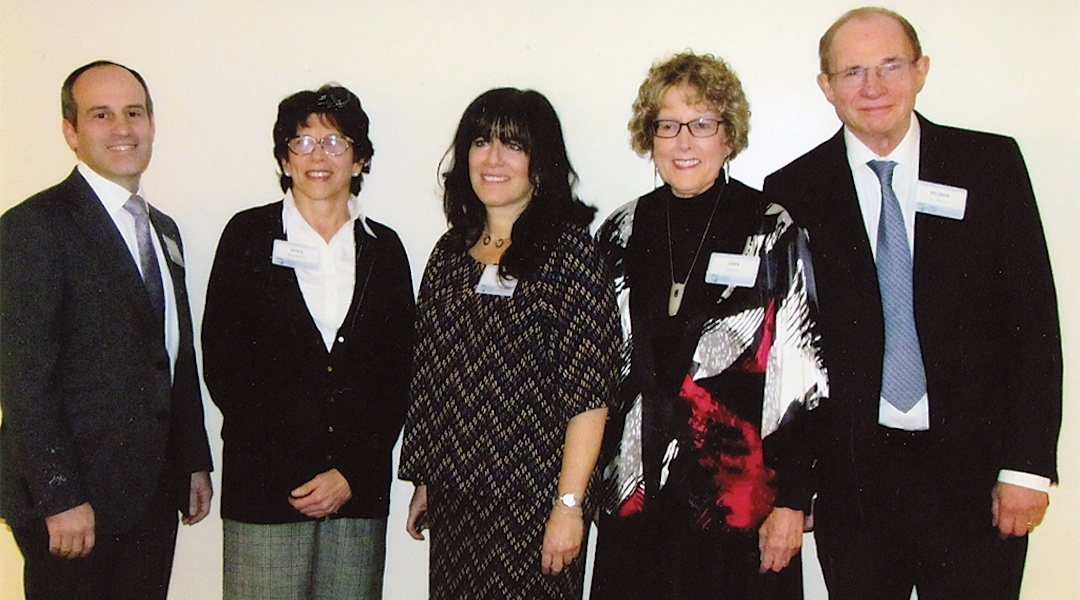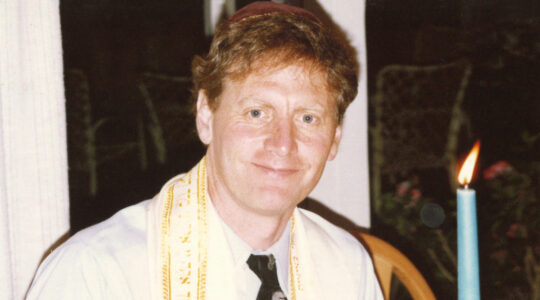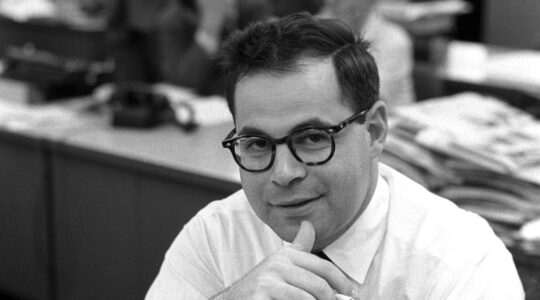(JTA) — Reuben Baron was nothing if not persistent.
As a social psychologist at the University of Connecticut, he and colleague David Kenny submitted their paper on statistical methods in the social sciences to the two most-read journals in their field. Both said no. They next turned to the Journal of Personality and Social Psychology, which finally, and somewhat reluctantly, agreed in 1986 to publish their paper.
Thirty-seven years later, that paper, “The moderator–mediator variable distinction in social psychological research,” remains the most cited paper in the history of psychology. It has been referred to in other works more than 120,000 times, or more than 3,000 times a year since its publication.
Even their critics noted its influence, with one analysis calling the paper “so well known that it is used by authors and requested by reviewers almost reflexively.”
Baron, a professor emeritus at UConn who after his retirement moved to Cliffside Park, New Jersey, died Sunday after a struggle with Alzheimer’s. He was 86.
In addition to his work in social perception and social cognition, he was a widely published art critic and collector, contributing dozens of articles to the online journal artcritical.com with his wife and co-author, Joan Boykoff Baron. The two also curated an annual lecture in art at Congregation Beth Sholom, their synagogue in Teaneck, New Jersey, which presented such major figures as painter and sculptor Eva Hess, environmental artist Mierle Laderman Ukeles and the Pulitzer Prize-winning composer Steve Reich.
The Baron-Kenny method sought to bring statistical rigor in establishing cause and effect (isolating why, for example, exercise improves mental well-being, or socioeconomic status affects reading ability). But Baron was also a deeply spiritual man, active at his synagogue and devoted to what his son Jonathan Baron called “service of the heart.”
“It would be an enormous error to say that my father wasn’t religious,” Jonathan said at his father’s funeral on Monday in New Jersey. “My father and mother have always been and remain the ‘frummest’ [most religious] people I’ve ever met when it comes to being … scrupulously honest in commercial matters, pushing oneself to give more and more to tzedakah [charity] and assisting people in need in too many ways to count.”
Reuben’s wife Joan also said that for a social scientist steeped in statistics, he had the sensibility of a poet. After the two met on a blind date at the University of Michigan in 1963, his early gifts to her included volumes of poetry by Allen Ginsberg and Charles Baudelaire.
He is survived by his wife, sons Michael and Jonathan and their wives, and seven grandchildren.
Baron was born Aug. 1, 1936 in Brooklyn and grew up in Crown Heights, attending P.S. 161 and Samuel J. Tilden High School. He became bar mitzvah at Temple Petach Tikvah, a now-defunct synagogue in Crown Heights. He attended Brooklyn College and earned his doctorate in psychology at New York University. He published more than 100 articles in various fields and subfields of psychology.
Despite the wide reach of the method, his son Michael said his father would have wanted to be most remembered as a mentor who had a “remarkable track record for supporting students in completing their dissertations.”
“That is so rare in academia,” said Michael. “To see graduate students in a professor’s office hours, just sharing ideas and rooting for each other.”
JTA has documented Jewish history in real-time for over a century. Keep our journalism strong by joining us in supporting independent, award-winning reporting.






